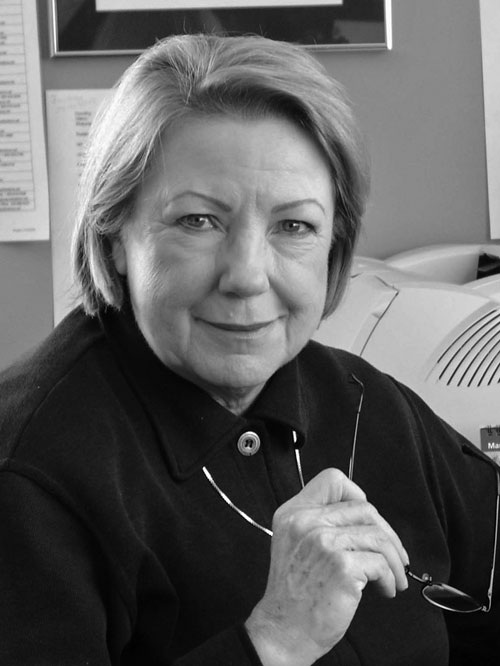
Issues in the news
A funny thing happened on the air a week or so ago. I recounted a story about how CBC on-air personality, Michael Enright, once interviewed me about roses. I extolled the virtues of Morden roses as being the best in Canada for their beauty and hardiness. They will even grow in Zone 2, which in Manitoba would take you as far north as Rankin Inlet!
Mr. Enright’s rejoinder to this was to comment, “Oh, Dorothy. You always were such a partisan!” referring I suppose to my former career as a Progressive Conservative member of Parliament and my love of Manitoba. He was born in Toronto and is a product of that central Canadian mentality, where it if ain’t from Tronna, it ain’t worth nothin’!
But my point here is the fierce response this story received from a listener to our radio station. The story I told was a negative comment about me, delivered with a laugh, illustrating how being a proponent of Manitoba-bred plants can be interpreted as a being “partisan”. It was taken as a slur against him, who is clearly above any criticism no matter how roughly he treats a woman who is talking about roses.

We now live in a world where the slightest comment can cause a paroxysm of rejection for the person who dared to utter a statement, true or not, that goes against the dearly held views of the listener.
This, in other times, was known as fascism. More recently, we understand it as a kind of fundamentalism, where folks with very particular views cannot bear to hear anything counter to what they believe. In philosophy, this is a symptom of something called “false consensus”. According to Wikipedia, “when confronted with evidence that a consensus does not exist, people often assume that those who do not agree with them are defective in some way.” That seems to be where we are today.
It is assumed that everyone agrees that climate change is an “existential threat” to quote CBC’s Cross Country Check-Up guests on a recent Sunday afternoon. I heard no one counter the argument during the period I was listening, which could have been a product of careful screening or the counter to false consensus, “pluralistic ignorance”, which holds that “people privately disapprove but publicly support what seems to be the majority view (regarding a norm or belief), when the majority in fact shares their (private) disapproval.”
I don’t mean to get into a deep philosophical discussion here, but I do want to bring attention to the fact that a pluralism of views is essential to the future of the planet. If we all think the same way, if any thoughts are taboo, we are in danger of losing the map to progress. Yes, there will be views that are pretty much universally rejected (it’s not a good thing to go around killing people, willy nilly), but in every belief, our progress requires a search for some essential nugget of truth. This doesn’t mean that there is one that we accept or agree with, but it does mean that we need to be able to examine every idea for that nugget of possible truth or wisdom.
Shutting down ideas and freedom of speech is shutting down creative thinking. We may not like the artistic expression of a woods filled with rotting meat hanging from trees, but it is an expression we need to accept that the artist has the right to express.
Today, there is an attempt to get everyone thinking the same way and talking the same way and dressing the same way. This is a very big mistake.
You may not like what Donald Trump has to say, but he is reflecting the way many people think and we need to listen and consider. We may not agree with Max Bernier in Canada, but there are many truths in his platform that are worth hearing, even while we support someone else. By the same token, you may disagree with Justin Trudeau and his army or political “correctees”, but there are many truths most of us accept in what they are saying. We need to listen.
We also need to promote their right to speak.
So, Mr. Enright, I am a “partisan’, proudly so. I have beliefs and opinions and I like to express them. I hope they are well researched and based on fact, but I am open to other ideas and points of view.
Are you?

